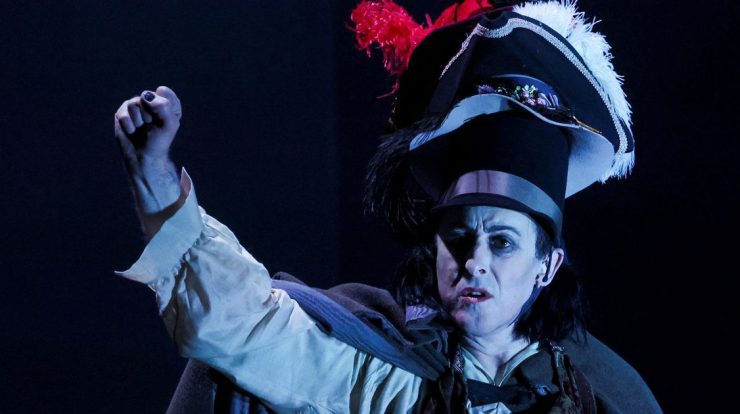
Last Thursday, the Edinburgh Festival received a standing ovation for the spectacular premiere of the Greek tragedy Medea. The lead actress was black and the adaptation focused on contemporary political issues such as racism and masculinity. If he is alive, the genius Euripides, author of the original Medea, will be happy to see that his play has so much to say to this day – and will be delighted by the performance of Adura Onashile, one of the best actresses in the new generation of British theater.
Famous for its castles and ghosts, Scotland’s capital comes alive in summer with cultural festivals – from theatre, film, literature and music to a political science unit. Together, events move around R$6 billion annually. However, the biggest effects are long-term.

A survey conducted by French bank BNP Paribas indicates that Edinburgh is the second center of digital technology in the UK, just behind London. For BNP, the quality of cultural presentation is at the root of this phenomenon. Art – particularly what reflects on contemporary themes, such as Medea by Onashile – attracts talented young people and nonetheless animates the startup ecosystem. The University of Edinburgh is expected to open in the coming months a department focusing on the economy of the future – digital, sustainable and grounded in art and design.
The winning equation applies to many cities. Austin, Texas is equally well known for its bustling cultural scene – and also for its digital vibe. “In Latin America, the most successful festivals are Bogotá, Buenos Aires and Santiago,” says theater critic Roy Filho, who studies the topic. It’s the mini hub of the week.
For Roy, one of the editors of the cultural magazine Antro Positivo, Brazilian festivals still have a long way to go. He cites the most traditional of them, Curitiba and São José do Rio Preto, and highlights successful initiatives in Salvador and Teresina. “Our challenge is to do something with a cultural and economic impact comparable to European festivals or even Bogotá,” Roy says.
In Brazil, there are still remnants of a parochial mindset that sees art as a secondary commodity. The Greeks knew, since the time of Euripides, the importance of theater in stimulating thinking, forming good citizens, and motivating the economy. Cutting off cultural funds, mocking incentive laws, stigmatizing artists, the state condemns not only obscurantism, but also backwardness and poverty.
Small podcast with Roy Felho
Report on the study of BNP Paribas
Links to Brazilian festival websites
